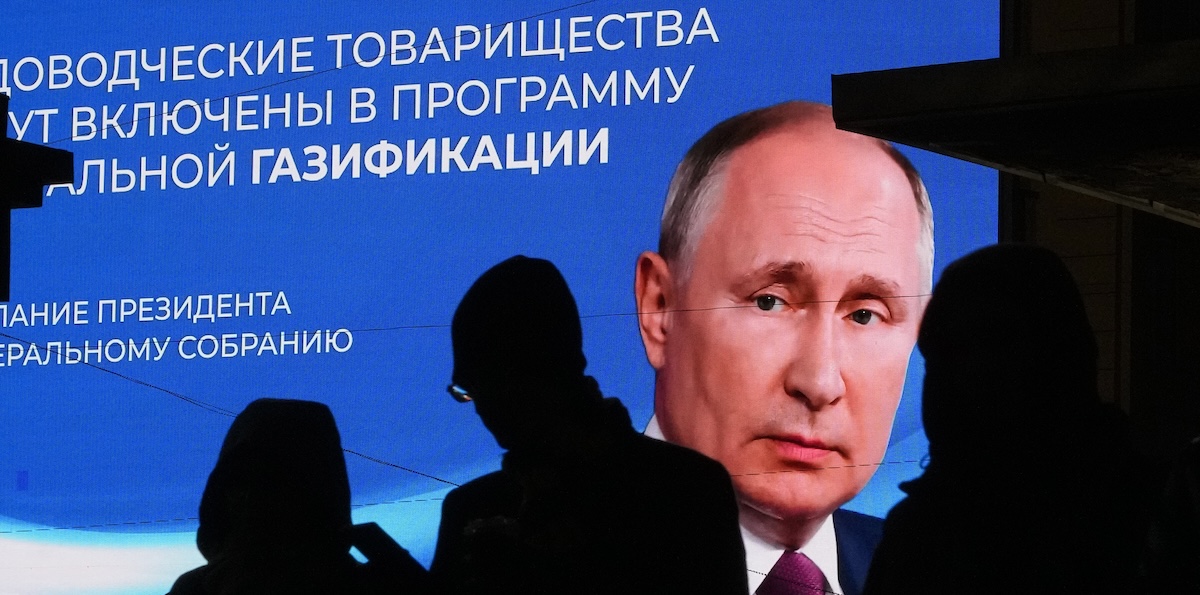Loading player
From today to Sunday there are presidential elections in Russia, a vote whose outcome is widely expected given that the outgoing president Vladimir Putin, who is running for a fifth term, has no real opposition. They are in fact “farce elections”, but they still have political relevance for Putin, who wants to obtain a very large victory to further legitimize his power. They are also the first nationals since the Russian invasion of Ukraine began, and take place a few weeks after the death of Alexei Navalny, Putin’s most prominent political opponent in Russia, who died on February 16 in a prison in the north of the country in circumstances that are still unclear.
The central issue is not so much who will win, but by how much Putin will win. In the 2018 elections, Putin obtained 76.7 percent of the preferences (more than 56 million votes) and the turnout was 67.5 percent. In these elections, according to most international political analysts, Putin aims to obtain around 80 percent of the votes, with a turnout of at least 70 percent.
Such a large victory would allow him to strengthen his power and dispel any hypothesis that there might be discontent with the government among the Russian population, given that for the past two years the country has been living in very complicated economic conditions due to Western sanctions following the invasion of Ukraine.
The turnout will certainly be conditioned by the fact that there is also voting in the four Ukrainian regions of Donetsk, Luhansk, Zaporizhzhia and Kherson, occupied by the Russian army and annexed by Russia in September 2022 with a farcical and illegal referendum: it is estimated that in the regions there are approximately 4.5 million voters (in total Russian citizens who can vote are approximately 114 million). Another factor that could contribute to the growth in turnout, and to Putin’s margin of victory, is the fact that from this year in 29 Russian regions it is possible to vote online, a voting method whose regularity is difficult to control, which is why where fraud is feared.
Putin is 71 years old and was able to run again thanks to a constitutional reform approved in 2020, which allows him to remain in power for another two presidential terms. With the reform, a limit of two consecutive presidential terms was imposed, but the referendum reset the count of Putin’s previous mandates and therefore allowed him to run: if he wins these elections, as is certain, and possibly also those of 2030, Putin could remain in power until 2036, when he will be 84 years old.
– Read also: Putin’s fake opponents in the Russian presidential elections
In these elections the only uncertainty for Putin concerns the margin he will have over his opponents. There is no real opposition against him, and the elections are taking place in a climate that has no democratic basis, in which every slightest dissent towards the Russian president has been systematically repressed. There are no candidates who can really hope to challenge the outgoing president for victory, but only “front candidates”.
In Russia, the parties that oppose Putin are in fact used by the regime only to give a semblance of democracy to the entire system, but in reality they vote together with Putin’s party, United Russia, on all the most important issues. The main candidates are Nikolai Kharitonov, of the Communist Party, Leonid Slutsky, of the right-wing nationalist Liberal Democratic Party, and Vladislav Davankov, of the New People party, which defines itself as liberal. Two other politicians of national importance who were candidates were excluded in recent months: Yekaterina Duntsova and Boris Nadezhdin.
In all this there are Navalny’s former supporters, who have said that they do not consider any of the candidates a real alternative to Putin and have only suggested voting for “anyone” but not the outgoing president. Navalny’s widow, Yulia Navalnaya, also called on all Russians who oppose Putin’s government to organize a collective and peaceful protest, all going to the polls together at the same time, on March 17 at noon, to “show that we exist and that we are many.” The idea of a similar protest had been proposal by Navalny himself shortly before his death. Navalny’s former collaborators defined the protest as “noon against Putin”.
